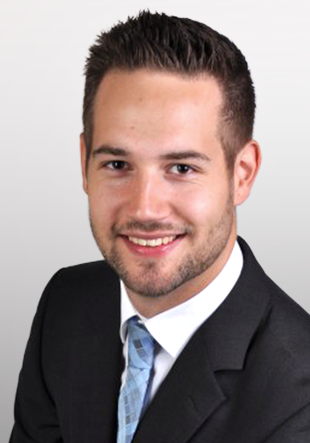Around 85 per cent less CO2 emissions possible
The automotive sector produces around 14 per cent of global greenhouse emissions. In addition, considerable quantities of raw materials are consumed. A well-organised circular economy could make a significant contribution to improving resource management and minimising waste and scrap. To this end, Paderborn University and its partners have launched the ‘Digi4Circular’ project, which is developing a digital platform to promote the circular economy. The aim is to create a holistic solution that transfers all data about the life cycle, including the end of life and the associated material recycling, into product development. The aim is to create optimised designs for circular economies and specific manufacturing processes, thereby minimising waste and maximising the use of resources. The project specifically demonstrates how the increased use of recycled aluminium made possible by the platform can reduce CO2 emissions by as much as 85 percent. This is because the EU automotive industry uses around two million tonnes of aluminium every year, which has now been added to the EU's list of critical raw materials - three times more than any other sector. ‘Digi4Circular’ is being supported by the EU with funding totalling around 5.7 million euros over a period of three and a half years.
Transparent life cycle concepts calculate environmental impact
The project integrates physics-based methods and machine learning to provide the necessary data for recyclable products. This includes, for example, the automated design of components and assemblies, the integration of norms, standards and expert knowledge as well as an innovative computer-based material design that can predict material properties without complex experiments. The digital platform combines all the necessary software tools in one information space, whereby life cycle data is systematically recorded in a digital product passport. This information is accessible to developers anytime and anywhere and offers maximum transparency for users. In addition, life cycle concepts are developed that include areas such as repair, refurbishment, reuse and recycling.
‘The approach is demonstrated using specific use cases of aluminium die casting in the automotive industry. By combining automated workflows with algorithms that are partially supported by machine learning, the ‘Digi4Circular’ platform enables circular product designs - based on the environmental impact calculated for end-of-life scenarios,’ explains Prof Dr Iryna Mozgova from Paderborn University, who is leading the project. Manuel Ott, senior engineer in the ‘Data Management in Mechanical Engineering’ specialist group, adds: ‘The digital product passport ensures maximum transparency for users in terms of origin, manufacturing processes, environmental impact and other relevant information about the product.’ In addition to the specialist group, the Chair of Materials Science and the Product Creation department at the university's Heinz Nixdorf Institute are also involved in the project.
Significance for the EU
The technologies are intended to strengthen the EU's global leadership role in the digital and green transition. Mozgova: ‘The traceability and transparency of value chains, made possible by the digital product passport, contribute to the strategic strengthening of the EU. The increased reuse and recycling of primary materials, especially aluminium, promotes the security of supply chains and reduces dependence on exports.’
People at the centre
The project takes a people-centred approach by integrating expert knowledge, empowering employees through targeted training and reducing the negative impacts of aluminium mining. In this way, Digi4Circular also supports the European Green Deal and several Sustainable Development Goals (SDGs) of the United Nations.
In the coming years, the experts will work on advancing digitalisation and sustainability in production. Innovative software and modelling solutions will promote the transition to a circular economy. This should not only bring ecological benefits, but also strengthen the EU's competitiveness on the global market.
This text was translated automatically.




